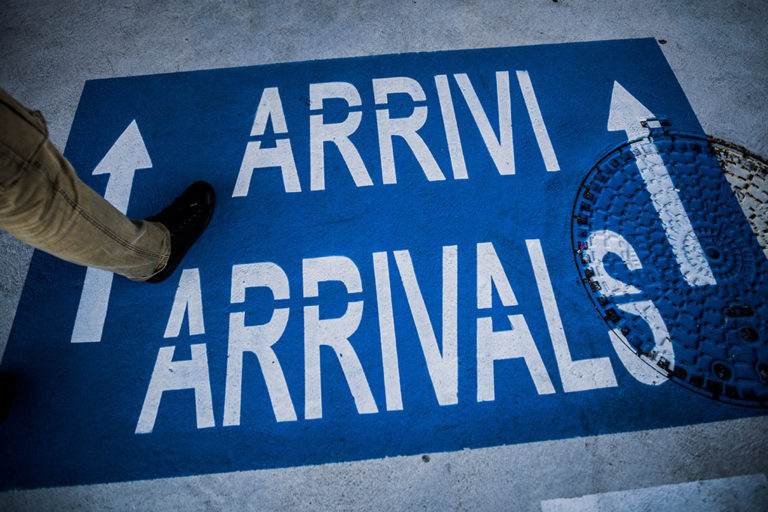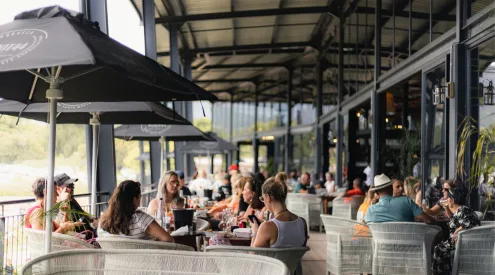When you travel and go on holiday, amid all the excitement you might let your guard down. In a new country, you might be completely unaware of scams that locals wouldn’t fall for, and be an easy target. South Africans tend to have a fair degree of street smarts, but we’ve all been fooled at least once.
Here are some common travel scams to be on the lookout for:

Image credit: Kipras Streimikis/ Unsplash
1. Airport collection
Even if you have not arranged to be collected from an airport you could be at risk for falling for this scam, which comes in two guises. After a long flight (or even a short one) all you want to do is get to your hotel and relax, so beware.
Scenario one: You haven’t arranged to be collected from the airport in a foreign country but after collecting your luggage you walk out into the arrival hall and a chauffer is standing with your full name on a board.
After you greet him he tells you the hotel you are staying at has sent him to collect you. It seems legitimate because he has your name and that of your hotel. You go with him, but he stops midway on the trip and demands a large sum to continue the journey.
In fact, he is an insider within the airline crew, who fed him your information after you filled out the customs card during the flight.
Scenario two: A person approaches you, greets you by name and claims to be your driver. You go along with him but, as with the scenario above, he stops halfway through your trip and demands a large sum to take you to your destination.
If you’ve arranged to be collected by a driver, make sure that the driver has a board with your name on it or knows your name as soon as he greets you and introduces himself as your driver before he has a chance to read your name off your luggage tag or other paperwork.
Because of the prevalence of this second scam in Africa, some tour operators don’t offer branded baggage tags to their guests.
2. Fake online travel agency
Scammers create authentic-looking booking sites using beautiful travel destination images taken off the Internet. The fake travel agencies will be live for a month and they will promote ‘discount deals’ via Google AdWords or Facebook ads for a month and gets eager would-be travellers to book through them before shutting down the site and moving on to creating a new one.
To avoid this scam, only book through reputable agencies that have been around for some time, chat to friends and family and look for online reviews.
3. Motorbike scam
Mopeds and motorbikes are popular methods of transport in Southeast Asia where this scam occurs.
After a tourist returns a rented bike, the owner demands extra payment for damage to the bike which was already there, or claims that it needs to be repaired. According to Nomadic Matt, there have even been cases where the owner sends someone to tamper with the bike after you’ve rented it.
To avoid this happening to you, document any existing damage to the bike by taking photos of it – let the owner see you doing it. Keep your own bike lock and park the bike out-of-site and off main streets where possible.
4. Credit card scam
According to Lonely Planet’s Chris Zeiher, this scam, prevalent in Spain, usually takes place in a small shop, where the cashier will be on their cellphone when you want to pay.
The cashier will fiddle with their phone and take ages to process your transaction. ‘What they’re doing is using this time, and the disguise of the call, to photograph your credit card number for use later.’
To avoid this, try and pay cash or watch the cashier and ask politely the person to please finish their ‘call’.
5. Accepting a ‘gift’
This scam is common in Europe. A smiling person will approach you and offer you a rose, a spring of rosemary or perhaps start a friendly conversation and then place a hat on your head or a bracelet on your wrist. Once you have taken the offering into your hand of had something on your person, the stranger will demand money. They can get aggressive or alternatively cause a scene in the hope that you’ll rather pay them off than be embarrassed in public.
Be aware of the people around you and don’t accept a gift, especially if someone tries to thrust it into your hand or onto you.
6. Group photo offer
You’re travelling with friends and are about to take a photo of the group (sans yourself) at a popular tourist site. Someone offers to take a photo for you and then dashes off with your expensive camera or cellphone. This is quite a brazen theft and less likely to occur if you approach another tourist to take your photo.
7. Fake call from ‘hotel front desk’
You are fast asleep in your hotel bed and you get a call late at night or very early in the morning. The person on the line pretends to be the front desk manager and claims that the hotel’s computer system has crashed. The person asks for your credit card information. Half asleep, you may capitulate. Of course, the person calling is a scammer, not a hotel employee, and has nefarious intentions.
Again, be wary if anyone you asks for your credit card information, especially unexpectedly.
Image credit: Fredrik H / Unsplash
















